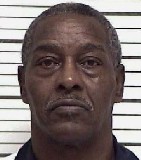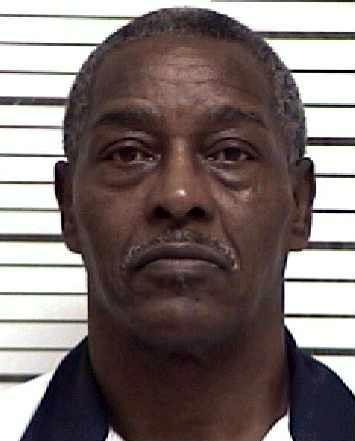On the evening of February 8, 1982, Hill was at home, drinking and listening to music in his car with a friend, Wayne Lockette, when a violent domestic dispute erupted between Hill's neighbors, Virginia Barber and Edward Saffo, who lived together in a trailer behind Hill's residence.
In connection with the dispute, Saffo twice fired a .32 caliber pistol outside the trailer and then left the area "to cool off." Barber went back inside the trailer, called the police, and then "set out after Saffo," armed with a pair of scissors. Janice Miller, another neighbor and a friend of Barber's who had been present at the Saffo/Barber residence when the altercation began, approached Hill and asked for his help in breaking up the fight. Hill declined, stating that he was too drunk to intercede.
After Miller left, Hill asked his daughter, Anita, to retrieve his gun from the house for protection. When Anita returned she handed Hill a flap-type holster, which, according to Hill, was empty. Lockette, who had exited the car by that time, watched Anita give Hill the holster but could not see whether the holster contained a gun. Lockette then went into the Hill residence with Hill's children.
Meanwhile, Barber caught up to Saffo along the road in front of their residence just as two police officers, Greg Thames and Greg Mullinax, arrived on the scene, responding to Barber's emergency call. Miller, as well as several of Barber's children, were also present when the officers arrived.
Officer Thames attempted to subdue Barber; however, as he was placing her in the rear of the patrol car, Barber's 15-year old son Stanley, armed with a butcher knife, began to fight with Thames. When the officers responded to this new threat, Barber left the patrol car and rejoined the fight.
By this time, the confrontation had drawn a number of bystanders, including Daryl Toles, Miller's brother, and Hill, who had driven his car down his driveway to the scene, parked immediately behind the police vehicle, and exited his car. Upon seeing Hill, the only person present whom he recognized, Officer Thames twice requested Hill's help, asking him to get the children out of the way of the fighting.
As Officer Thames was attempting to apprehend Miller, who had joined the confrontation, he heard Mullinax yell "watch out," then one loud shot, then a series of shots that "sounded like a string of firecrackers." Thames did not see who fired any of the shots. Barber, Miller, and two of Barber's children claimed to have seen Hill fire once into the air, but did not see who fired the subsequent shots. Apart from Mullinax and Toles, both of whom had been wounded in the shooting, and Thames, who radioed for help upon seeing Mullinax fall, everyone else at the scene scattered.
Mullinax and Toles both died from their gunshot wounds - Mullinax at the scene, and Toles in the hospital. It was later determined that Mullinax had fired the two bullets that struck and killed Toles, and that the bullets that killed Mullinax had been fired from a .38 caliber pistol.
When investigators arrived, they followed a trail of blood leading from the street, to Hill's home, into and out of the Hill residence, back to the Saffo/Barber trailer, and into the woods behind the trailer where they found Hill lying on the ground suffering from several gunshot wounds.
The police seized a .32 caliber pistol from Hill, advised him of his rights, and arrested him. Investigators also seized a holster that fit a .38 caliber gun from Hill's car, which had been left at the scene. Later that evening, investigators spoke to many of those who had been present at the shooting, none of whom identified Hill as Officer Mullinax's assailant. These witnesses also gave conflicting accounts of the events leading up to the shooting. Several days later the .38 caliber pistol from which the shots that killed Mullinax had been fired was found next to a tree between the Hill and Saffo residences.
Hill was subsequently indicted for the malice murder of Officer Mullinax and the felony murder of Toles. Hill was convicted on both counts and was sentenced to death for the murder of Officer Mullinax and to life imprisonment for Toles's murder. On direct appeal, the Georgia Supreme Court affirmed Hill's conviction and death sentence for the murder of Officer Mullinax, but reversed Hill's conviction and life sentence for Toles's murder, finding that Hill had not "caused" Toles's death within the meaning of the Georgia felony murder statute. The U.S. Supreme Court denied Hill's petition for certiorari.
Approximately two years later, in 1985, Hill filed an application for a writ of habeas corpus in state court, and in 1992, the state habeas court granted Hill relief from his conviction and death sentence, finding that he had been denied the effective assistance of counsel because of his trial counsel's simultaneous representation of a witness for the prosecution. The Georgia Supreme Court subsequently reversed the grant of habeas relief as to Hill's conflict of interest claim and affirmed the denial of relief on all other grounds.
Hill then filed this petition for federal habeas corpus relief, again challenging the validity of both his conviction and his death sentence on various grounds. After considering Hill's claims, the district court vacated Hill's death sentence, finding that the jury's consideration of Hill's subsequently reversed felony murder conviction impermissibly tainted the sentencing deliberations. However, the district court denied relief as to Hill's remaining claims pertaining to his death sentence and as to all claims pertaining to his conviction. We reverse. We conclude that, under the facts of this case, the district court erred in denying Hill habeas relief on his claim that the prosecutor's comment on his post- Miranda exercise of his rights to remain silent and to seek the assistance of counsel violated his due process rights under the Fourteenth Amendment.


